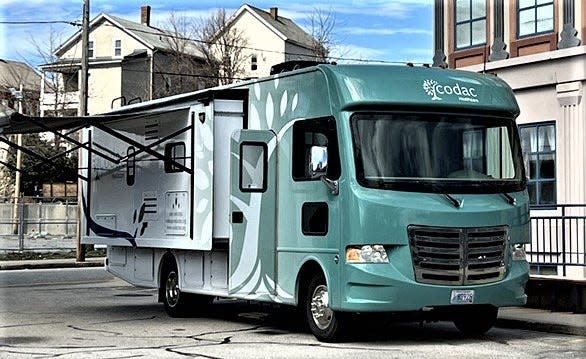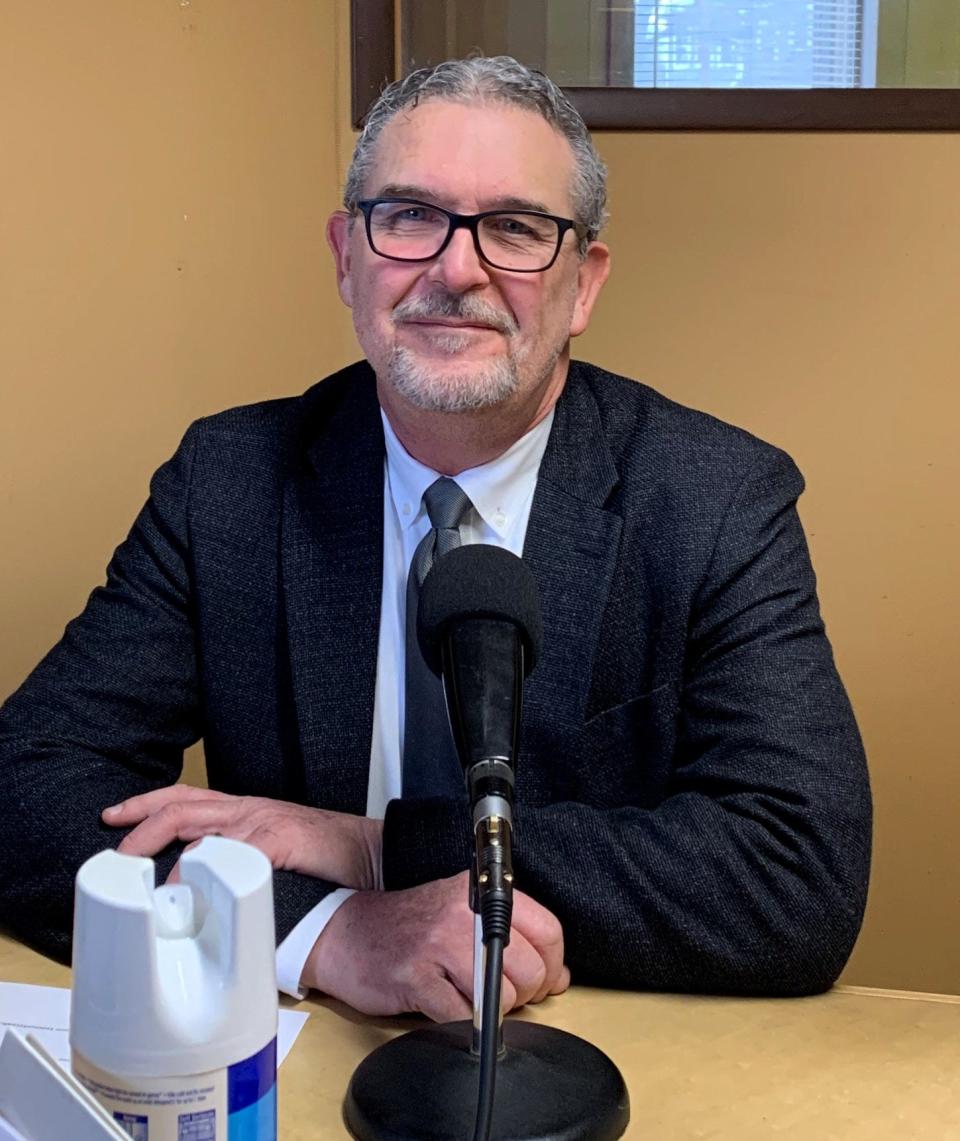A first in US, new mobile methadone unit seeks to reduce fatal overdoses in RI
WOONSOCKET — Framed by a record number of fatal drug overdoses in 2021, CODAC Behavioral Healthcare has launched a mobile medical unit that will dispense methadone and other medications along with offering counseling and other services for Rhode Islanders living with opioid use disorder.
According to CODAC, the unit is the first of its kind in the United States permitted under new federal Drug Enforcement Administration regulations that were adopted last year. The unit is parked at 800 Clinton St. and open from 6:30 to 10 a.m., Monday through Saturday.
"We have lost too many people in Woonsocket due to opioid addiction and overdose deaths,” Ben Lessing, president and CEO of Community Care Alliance, said in a media release.
More: $2.25M from opioid settlement dedicated to help RI create safe drug consumption site

More: Health Department warns about drug-overdose uptick in East Bay, northeast RI
“Community Care Alliance is pleased to welcome CODAC as an additional partner to address this acute behavioral health care need. Access, rapid response and addressing opioid concerns in a comprehensive manner is critical. We believe that the presence of CODAC's Mobile Medical Unit will help to improve current conditions on the ground."
A record 435 people in Rhode Island died in 2021 from accidental drug overdoses, nearly double the 240 deaths that occurred in 2014. The trend thus far in 2022 is discouraging: According to the state Department of Health, 133 such deaths have been reported to date. The number is preliminary and certain to rise as the department receives more information and confirms cause of death.
'A crisis': Record number of Rhode Islanders died from accidental drug overdoses in 2021

The Centers for Disease Control and Prevention reports that overdose deaths in America reached a record 104,034 in the 12-month period ending this past February. A disproportionate number in the year 2020 occurred among Black and American Indian/Alaska Native people, according to the agency.
In releasing overdose data for 2020, the state Health Department said the Black, non-Hispanic population saw the greatest increase in rate of fatal overdoses from 2016 to that year. In 2020 and 2019, the Black, non-Hispanic population experienced higher rates of fatal overdose when compared with the white, non-Hispanic and Hispanic or Latino population.
Replace stigma with compassion: RISD students reimagine better approaches to drug addiction
Across all groups, the cutting of street drugs with deadly fentanyl is cited as a major contributing factor to overdose deaths. A synthetic opioid, fentanyl is 50% stronger than heroin and 100% stronger than morphine, the CDC states.
According to CODAC, the new mobile unit, 27 feet long, "features a dispensary examination/treatment room, counseling room, waiting area, restroom, and fully equipped security system. ... Counseling services will be facilitated via telehealth in efforts to provide more hands-on support. Other on-site services will include but not be limited to blood pressure screening, glucose reading, and mental health screening."
“Access to care is more important than ever amid our soaring overdose rates,” CODAC president and CEO Linda Hurley said. "This mobile medical unit will allow us to face that challenge, both geographically and demographically. It will allow us to bring treatment to individuals struggling with addiction and literally meet them where they are — in the places where that treatment is most needed.”
A beacon of HOPE amid RI's opioid crisis: Police, addiction specialists team up
Lessing told The Journal in an email: "We believe a primary reason for the frequency of overdose deaths is in large part due to a feeling [of] despair for not being able to access shelter/affordable housing, food and other basic needs.
"Moreover, many of these individuals feel abandoned and discarded by their government. The use of fentanyl and other opiates dulls this despair to an extent; unfortunately with extreme consequences for some people. Given the resources the state has access to, we could be doing much, much more."
This article originally appeared on The Providence Journal: New mobile methadone unit seeks to reduce fatal overdoses in RI

